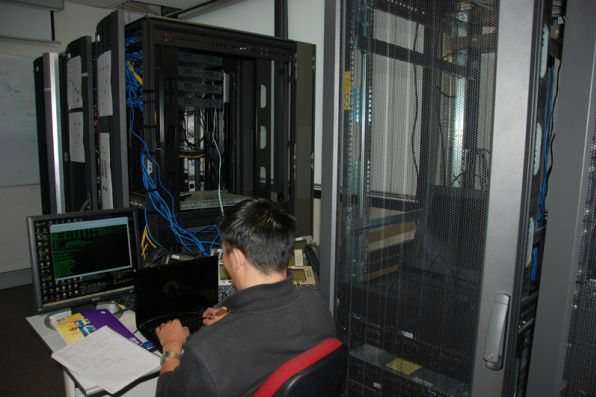A thorough curriculum that teaches on the basics, fundamentals and the intricacies of networking is invaluable. One such program that offers a learner a first-hand experience in soft-skill development in technology is CCNA Exploration. Cisco Certified Network Associate training is one of the most prestigious certification in the world where networking technology is concerned. It integrates many aspects among others network applications, protocols, lower layer network applications; the list is endless. Cisco Certified Network Associate training is designed for learners who want to take their skill to the next level to master advanced network application systems to make a difference.
Analytical skill and advanced ability to solve problems are some of the prerequisites for the CCNA Exploration program. Students will also need to be fully prepared to handle engineering concepts while performing practical tasks in a bid to get to the root of various problems as presented in the field. Learners must be in a position to develop critical thinking skills while working in advanced labs. The idea is to spark exploration, research and creativity to solve problems.
The dream of every student is to get the Cisco Certified Network Associate Certification. To get it, one would need to go through 4 semesters or 280 hours of instruction at the Cisco Networking Academy Program CNAP. The following is a breakdown of the CCNA Exploration program. In the first semester, students will tackle network fundamentals. Routing concepts and protocol will be covered in the next semester. Thirdly, LAN switching and wireless connectivity will be tackled. Finally, the 4th semester will consist of accessing the WAN and many other elements.

The Benefits of Taking CCNA Courses
There are countless benefits of taking these courses. The benefits will come after completion of each and every semester. The following is a look at some of the top merits to look forward to. In the first semester, completion of the course will enable students to undertake the following.
- It will enable the learner to integrate networking in the modern world.
- Communication through the network will be made possible.
- Learners can master protocol and layer functionality.
- They will know what Ethernet technology is all about.
- They will also acquire skill on how to plan, cable, configure and test networks.
Upon completion on the second leg of the course, students will be confident to handle;
- Packet forwarding and routing
- Static and dynamic routing protocols.
- Subnet masking for variable length and inter domain routing.
During the third semester, students will get deep into the course for advanced systems. Among others, learners will perform tasks related to basic switch concepts, LAN design and configuration. Other areas are spanning tree protocols; inter routing and basic wireless concept and configuration. There are many other technical tasks that learners at this level can tackle.
After the final semester, learners will be very confident in performing a wide array of tasks and solving different problems. Among others, they can comfortably handle frame relay, IP addressing services, WAN technologies and network troubleshooting; the list is long.
Overall Applications of This Certification
This certification is suitable for entry level opportunities in this career field. It is recognized globally and it gives the certified person confidence to handle small offices as well as home offices. Graduates will be suited to handle networks that have less than 100 nodes. In light of this, they will be in a position to do the following.
- Using both LAN and WAN interfaces, certified individuals will be able to configure Cisco switches and routers no matter the protocol or internet work.
- Level 1 troubleshooting will be performed by certified persons as well.
- They can enhance network security and performance.
- Planning and designing of Ethernet networks will be possible for those certified. Additionally, they will be in a position to troubleshoot the system as well.

